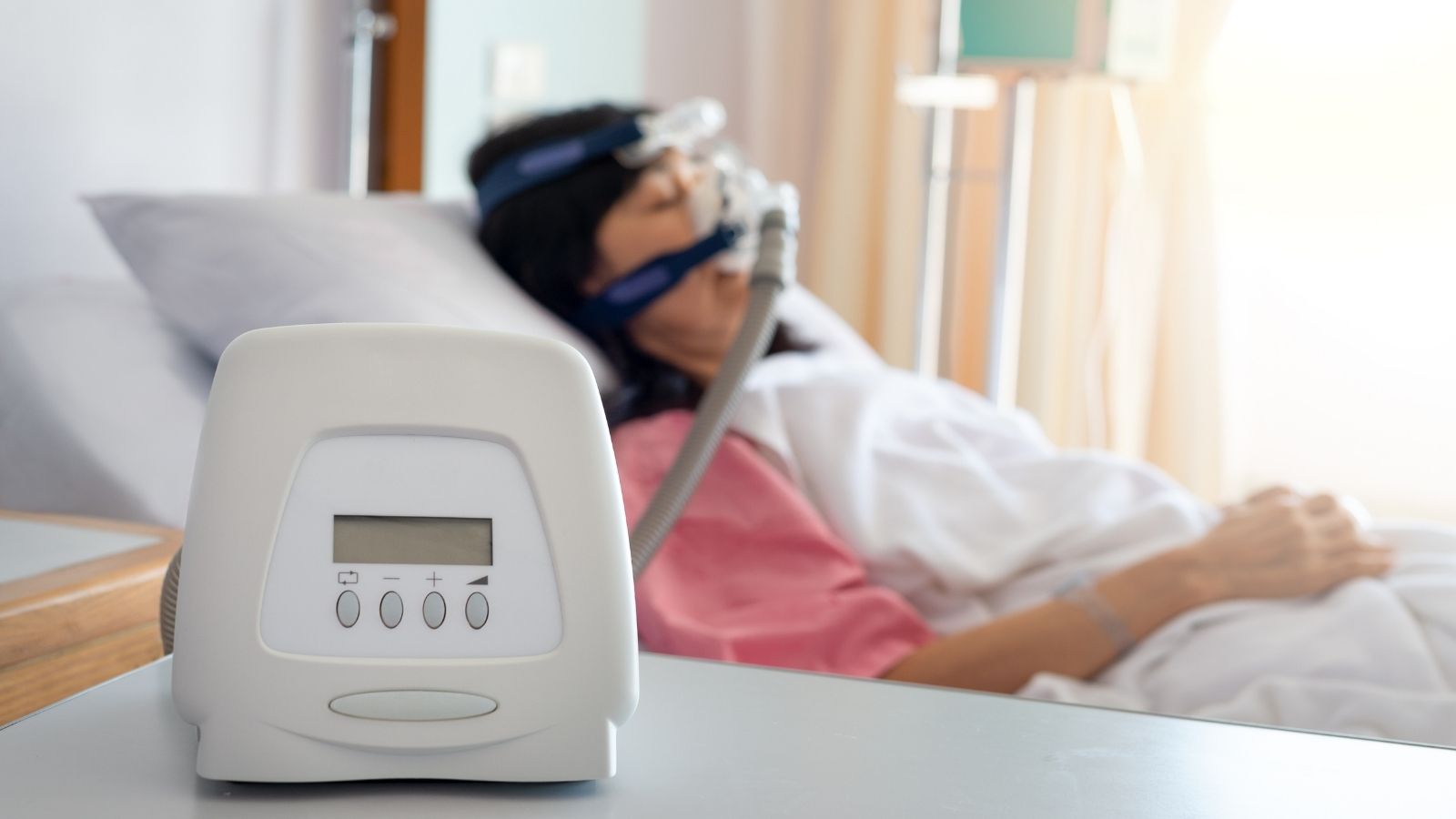Sleep and Pulmonology: Pathophysiology & OSA-COPD
The Sleep Medicine Textbook is a treasure trove of information on practically every aspect of sleep. As we continue our highlight of select chapters, in the first of a two-part series, we’ll look at sleep and pulmonology, specifically its pathophysiology, obstructive sleep apnea and chronic obstructive pulmonary disease.
Overview and pathophysiology
“Asthma and obstructive sleep apnea (OSA) are highly prevalent and often coexisting diseases. It has been hypothesized that a bidirectional relationship may exist between them, mediated by common risk factors, such as inflammation, obesity, rhinitis, and gastroesophageal reflux. However, there is no firm evidence yet confirming a mutual influence between OSA and asthma, and the relationships between OSA severity and asthma severity or control of asthma remain unclear. This may be partly due to methodological issues of the available studies, for example, the frequent use of questionnaires rather than objectively-based evaluation of both diseases.
Many studies suggest that asthmatic patients are at increased risk for OSA. On the other hand, some symptoms of OSA such as excessive daytime sleepiness are frequent in asthmatic subjects and are associated with poor sleep quality or insomnia. Continuous positive airway pressure (CPAP) treatment, or adenotonsillectomy in children, appears to improve clinical symptoms or exacerbation frequency in asthmatic subjects, whereas use of CPAP in asthmatic patients without OSA seems to exert no effect on asthma or bronchial hyperreactivity. Well-designed and longitudinal studies on large samples are needed to better understand the interrelationships between asthma and OSA, especially regarding patients with severe asthma.”
Summary by:
Jan Hedner & Ding Zou (2021). J. Sleep and Pulmonology 1. Overview and pathophysiology. In Bassetti, C., McNicholas, W., Paunio, T., & Peigneux, P. (Eds.). Sleep Medicine Textbook (2nd ed., pp. 717-724). Regensburg: European Sleep Research Society.
Obstructive sleep apnea and chronic obstructive pulmonary disease overlap
“Chronic obstructive pulmonary disease (COPD) and obstructive sleep apnea (OSA) each affect at least 10% of the adult population, and thus both disorders together (commonly referred to as the overlap syndrome) could be expected in about 1% of the adult population by chance. However, there are important interactions between both disorders that influence the prevalence of the overlap, which have important implications for the development of comorbidities, and for management. Sleep quality is typically poor in COPD, which may contribute to daytime fatigue. The predominant emphysema COPD phenotype, with hyperinflated lungs and relatively low body mass index (BMI), predisposes to a lower likelihood of OSA. Whereas the predominant chronic bronchitis phenotype may predispose to a higher likelihood of OSA as this end of the COPD spectrum tends to have a higher BMI, and right heart failure is more likely with associated peripheral oedema.
The specific diagnosis of OSA in patients with COPD requires an overnight sleep study, and ambulatory studies that focus on cardiorespiratory variables are often adequate. In COPD-OSA overlap patients, non-invasive pressure support is appropriate in addition to standard COPD medications. The recognition of co-existing OSA in patients with COPD has important clinical relevance, as the management of overlap patients differs from COPD alone, and long-term survival of overlap patients not treated with nocturnal positive airway pressure is inferior to overlap patients appropriately treated. These findings emphasize the importance of diagnosing OSA in severe COPD in order that appropriate positive pressure therapy can be selected.”
Summary by:
Walter McNicholas (2021). J. Sleep and Pulmonology 2. Obstructive sleep apnea and chronic obstructive pulmonary disease overlap. In Bassetti, C., McNicholas, W., Paunio, T., & Peigneux, P. (Eds.). Sleep Medicine Textbook (2nd ed., pp. 725-733). Regensburg: European Sleep Research Society.
Reminders
Sleep Europe 2022 Registration Open
The ESRS Board is pleased to announce that registration is now open for Sleep Europe 2022 in September in Athens, Greece. We look forward to seeing you there in-person for an exciting programme including new teaching courses, mre keynote speakers than ever before and numerous sessions based on our six educational tracks. View the entire scientific programme and register today.
Apply for Research Grants
The ESRS has recently launched a grant in support of Ukrainians leaving Ukraine due to the conflict. This research grant is for a 3-month study stay aimed at sleep researchers, investigators, scientists and clinicians.
Applications will be accepted on a rolling basis.
More details here.
The ESRS supported by our corporate member Bioprojet, is offering a 10.000 € grant to support a young physician working in the field of daytime sleepiness. The grant should support an ongoing or new research project and should be completed within three years.
Application Deadline: 24 June 2022
More details here.
Recent publications from ESRS members
- Casaglia & Luppi (2022). Is paradoxical sleep setting up innate and acquired complex sensorimotor and adaptive behaviours?: A proposed function based on literature review. J Sleep Res.
- McNicholas & Pevernagie. (2022). Obstructive sleep apnea: transition from pathophysiology to an integrative disease model. J Sleep Res.
- Craig et al. (2022). Investigation and management of residual sleepiness in CPAP-treated patients with obstructive sleep apnoea: the European view. Eur Respir Rev.
- Tellenbach et al. (2022). REM sleep and muscle atonia in brainstem stroke: A quantitative polysomnographic and lesion analysis study. J Sleep Res.
- Vethe et al. (2022). Evening light environments can be designed to consolidate and increase the duration of REM-sleep. Sci Rep.
- Gouveris et al. (2022). Reduced Cross-Frequency Coupling and Daytime Sleepiness in Obstructive Sleep Apnea Patients. Biology.




